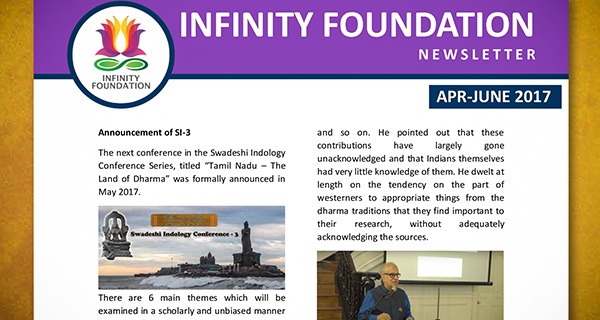California State Polytechnic University
California State Polytechnic University
Celebrating Mahavira’s Teachings
The Lessons of Ahimsa and Anekanta for Contemporary Life
Celebrating Mahavira’s Teachings
The Lessons of Ahimsa and Anekanta for Contemporary Life
January 19-20 (Saturday-Sunday), 2002 at Cal Poly Pomona
Sponsored by The Infinity Foundation, the Jain Community, the Southern California Seminar on South Asia, and the College of Letters, Arts & Social Sciences at California State Polytechnic University, Pomona
Purpose
From the teachings of Vardhamana Mahavira, the philosophy of Anekanta and the principle of Ahimsa are acquiring universal relevance as well as great practical significance at the dawn of the twenty-first century. People today are becoming increasingly conscious of their distinctive identity not only in terms of race and ethnicity but also cultural traditions and religious beliefs. While such consciousness of one’s heritage and a sense of pride in it serves as a positive forces at the personal level, it also frequently leads to schisms and strife at the social level. The make-up of communities, cities and even nations reflects unprecedented diversity today, and this diversity when not accompanied by a strong spirit of mutual understanding and appreciation, is prone to fuel tensions that result in a variety of violent behaviors. Tragic examples of violence we witness everyday range from mass genocides and political terrorism to school shootings and road rage incidents.
Anekanta is a non-absolutist philosophical that which underscores the dialectical aspect of reality and considers it to be multi-faceted in nature. Consistent with this philosophy, the principle of Ahimsa, or non-violence, implies respect for all living beings, including all life forms and the ecosystem. As a way of life, Ahimsa promotes an attitude of tolerance, of live-and-let-live. Violence to be eschewed is not just physical, but also vocal and mental. Therefore, the principle of Ahimsa enjoins us to refrain not only from physical acts of violence, but also from vocal violence or abuse, and even violent thoughts.
In this conference an international group of distinguished scholars and experts will share their research and insights on the teachings of Mahavira and Jainism, and approaches to education about Jainism.
Conference Themes and Questions
- What lessons may we draw from the life and teachings of Mahavira for contemporary life?
- How can the understanding of Anekanta help us become more tolerant of disagreements while promoting freedom of individual thought?
- How can the philosophical orientation of Anekanta help overcome the sectarian emotions while recognizing the autonomy of the sect?
- What role could the principle of Ahimsa play in creating an environment of respect and care for all living organisms? Can this be applied also to the preservation of our natural environment?
- How can the principle of Ahimsa be seen as an empowering ideology rather than a sign of weakness in the world characterized by violence?
- How can the application of Anekanta and Ahimsa reform the political culture in which distinctiveness of characters is celebrated and not assassinated?
Audience
Primary audience for this conference will be the Jain community, and students and scholars of religious and philosophical traditions. However, all who wish to acquire a better understanding of the significance of non-violence, tolerance, and multi-faceted view of reality in the fast-changing and increasingly diverse world will find this conference as a valuable experience.
Speakers
- Professor Christopher Chapple, USA
- Samani Charitrapragya, INDIA
- Professor John Cort, USA
- Professor Paul Dundas, UK
- Professor Padmanabh Jaini, USA
- Dr. Kamla Jain, INDIA
- Mr. Satish Kumar, UK
- Professor John Koller, USA
- Samani Madhurpragya, INDIA
- Dr. L. M. Singhvi, INDIA
- Dr. Anne Valleley, Canada
- Dr. Kristi Wiley, USA
Conference Organizing Committee
- Prof. Christopher Chapple
- Mrs. Sunila Daga
- Dr. Bharti Jain
- Dr. Sukh S. Mehta
- Dr. Narendra L. Parson
- Prof. Tara Sethia, Chair
For more information, please contact
Professor Tara Sethia, History Department, Cal Poly Pomona, CA 91768 Phones (909) 869-3868 Work, (909) 860-5026 Home E-Mail: tsethia@csupomona.edu



